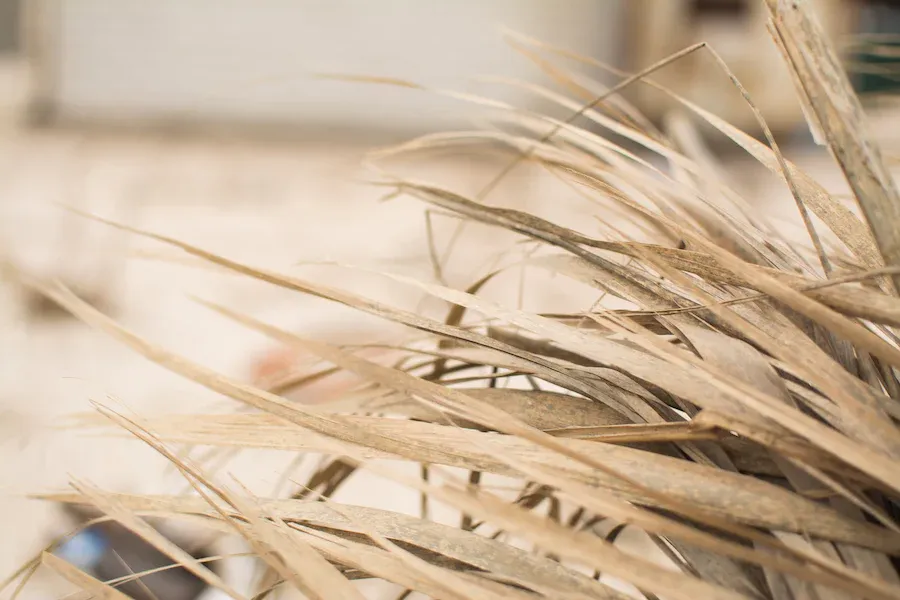Sixteenth Sunday in Ordinary Time - Fr. Pete
July 23, 2023 - 11:00 AM
Audio Recording
16th Sunday in Ordinary Time – Weeds and Wheat and Mustard Seeds
I thought it was very sweet that a first-grade teacher at a Catholic school taught her students about this parable of the mustard seed. She gave her first graders a necklace. As pastor, I got one too. The necklace had a little string, and attached to the string was a little clear container and inside it was an actual mustard seed. So the students could see that it was a very tiny seed and that it was going to grow into a big plant or bush… and that was what Jesus talked about the reign of God growing in them. The message is that it also takes time, and we have to be patient… and growth also happens quietly, and we don’t always see it happening. We like that sweet interpretation. But for those who heard Jesus tell the parable in their agrarian society, it was a shocking parable. Why?
A mustard bush was considered a weed. The story allows the bush to flourish and birds to come. Birds in this story are not the beautiful, winged creatures we love. They are an enemy of crops since they eat crops. So for farmers, the mustard seed is rejected since it is an invasive species no one wanted that gave shelter to birds that destroy crops.
So in Jesus’s story regarding the reign of God, he is saying that God wants what no one else wants. God wants the rejected. The otherwise unwelcome are made welcome, the misbegotten find a home. The stories help create an image of the Reign of God: we all live in solidarity. There is room for all.
The parable of the weeds and the wheat growing together until harvest is also shocking. Farmers do not want an invasive species to grow up and choke out the good wheat. Parables tell us about God and yes, Jesus shocked his hearers because his message challenged what religious leaders were preaching about a punitive and judgmental God.
This Gospel indicates that God is realistic and compassionate. With injustices and crises in every part of the world, many of us are asking ultimate questions about good and evil. “Where do the weeds come from? Where does evil originate? Why do people do such harmful things?” This world doesn’t make sense. How can people be so malicious, so unkind, so uncaring? It’s like we don’t know how to love anymore.
We live in the midst of a Church and world that has both good and bad. We also have good and bad inside us. The parable also teaches us to be compassionate with ourselves. After all, I’m a field of weeds and wheat, just like all of us, and just like everything is. We have to learn, even now, to accept and forgive this mixed bag of reality in ourselves and in everybody else.
To accept this teaching doesn’t mean we can say, “It’s okay to be selfish, violent, and evil.” It simply means that we have some realism about ourselves and each other. We have to name the weed as a weed. We can’t just pretend it’s all wheat, all good, because it isn’t. We’re not perfect. And that’s a beautiful aspect of the sacrament of reconciliation. We name our sins and desire to change. With patience and perseverance and with God’s grace, we grow in holiness.
“Let the weeds and the wheat both grow together.” Wow! That’s risky in a community setting. I can’t pretend to logically understand it or apply it universally. Truthfully, as a pastor, I have had to fire people, weed them out of parish ministry so to speak…what I hate most about being the boss. I had to make a decision that I determined needed to benefit the whole parish. And in those cases, I tried not to be harsh and rip them out, but kind and compassionate. And believe it or not, years later, one person even thanked me for letting them go.
The parable of the weeds and the wheat can be seen in married couples, whose unions have stood the test of time. You all can attest that love with patience, and forgiveness has helped you grow and to accept your spouse despite and sometimes even because of their faults. What love says, “I know your faults, I see your weeds, and I care for you anyway.”
